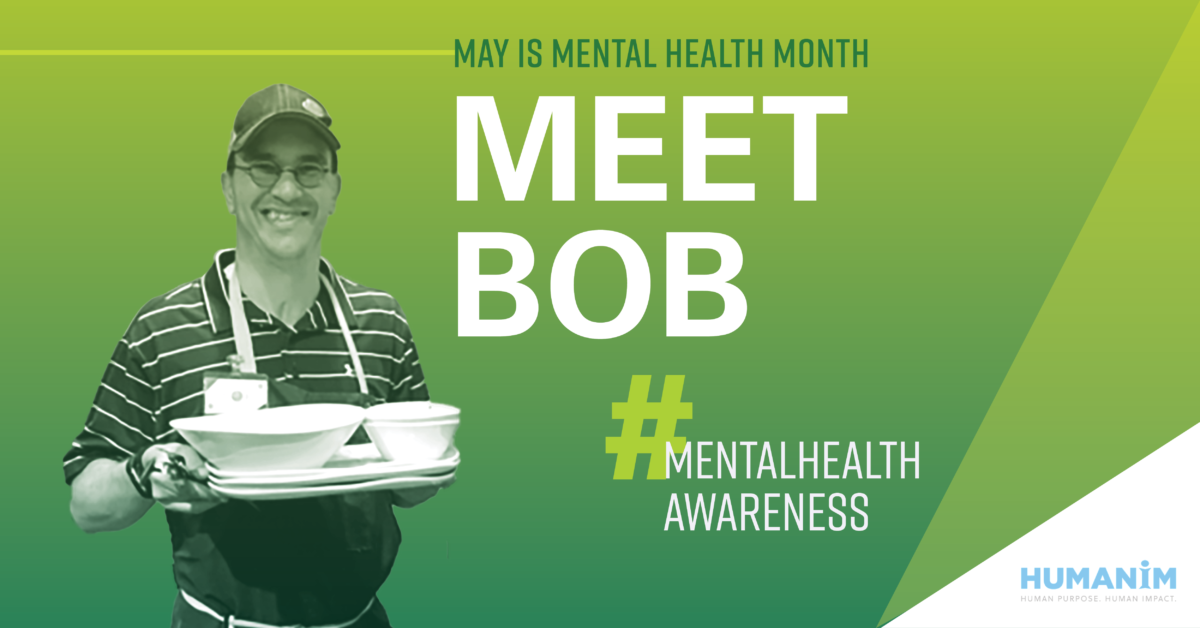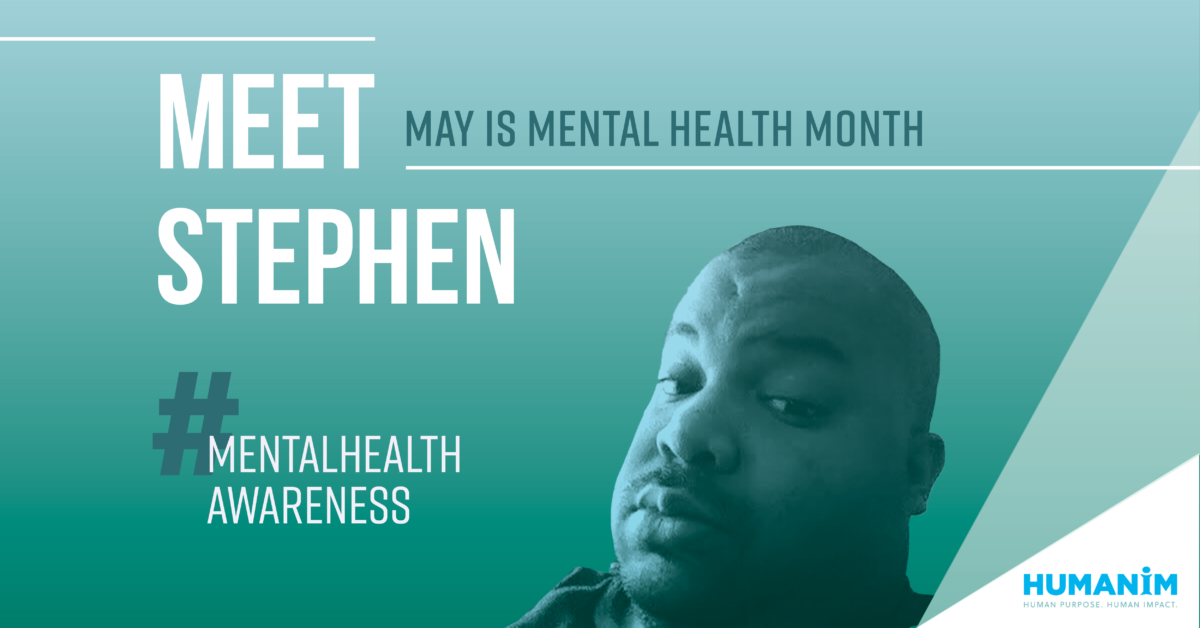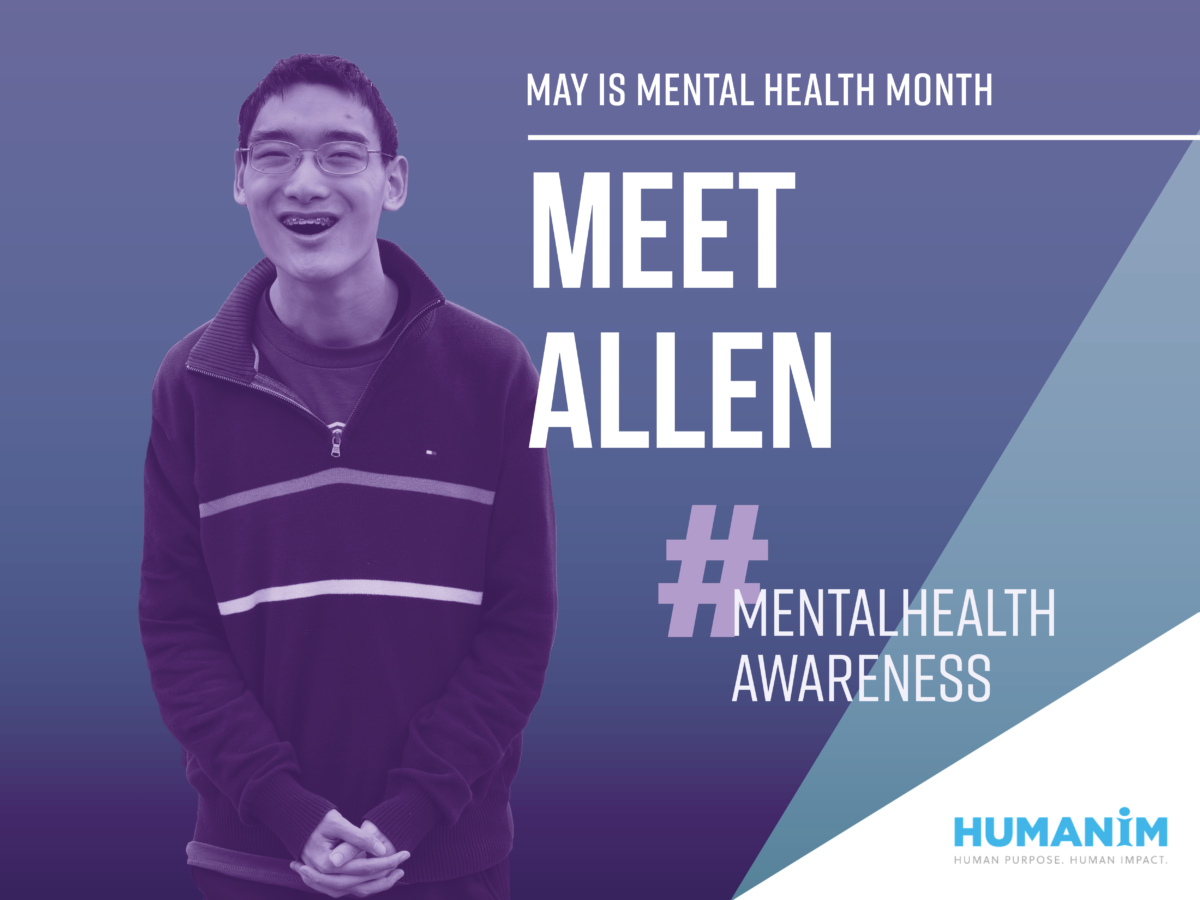May is Mental Health Month! Humanim’s programs serve individuals with mental illness through supported living and housing support, rehabilitation programs, supported employment, and community support services. Like all of Humanim’s programs and services, our focus is on individualized care and self-empowerment. Read more about our Behavioral Health Department here: https://humanim.org/what-we-do/human-services/behavioral-health/
Meet Bob!

“Humanim has helped me to find jobs, offered me support when needed during employment and maintained healthy communication with me throughout my career. I feel that Humanim has helped me to grow and mature as a person. I would not be the man I am today without their help.” – Bob – EBSE program.
Bob first began Humanim’s Evidence Based Practice Supported Employment program (EBSE) in 2011. He has maintained employment over the past 8 years, and in October 2017, Bob started at Panera Bread as a Restaurant Associate. This part-time position quickly moved to full-time thanks to his enthusiasm and excellent customer service skills. He continues to show great work ethic through his hard work and motivation!
Humanim’s EBSE program supports individuals who experience severe mental illness in their efforts to achieve steady employment in mainstream, competitive jobs.
Meet Stephen!

Stephen’s Grandmother first helped him find support, and in 2004, he began services with Humanim. Stephen has participated in the Psychiatric Rehabilitation Day Program and the Residential Rehabilitation Program. He is now in the process of moving out of the Residential Rehabilitation Program and into his own apartment in the community where he will live independently with the supports of the Supported Living Program!
Since fall of 2018, Stephen has been employed at On Our Own of Howard County as a Peer Recovery Specialist, where he helps others through their own recovery process by sharing his personal experience with mental illness. He is also on the Local Behavioral Health Advisory Board with the Howard County Health Department.
“Having a mental health illness can be difficult but there is no shame in saying that everyone needs help. Humanim has been a great resource over the years that I have been involved in the programs – things are now stable and have worked out for me.” – Stephen.
Meet Allen!
